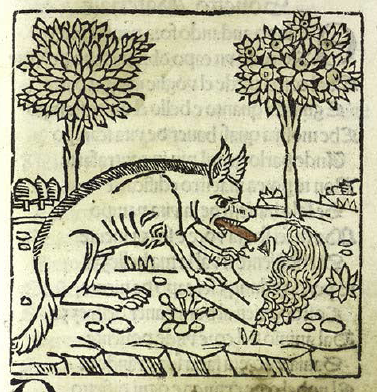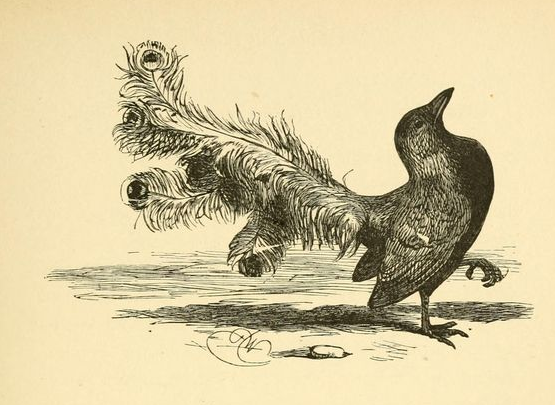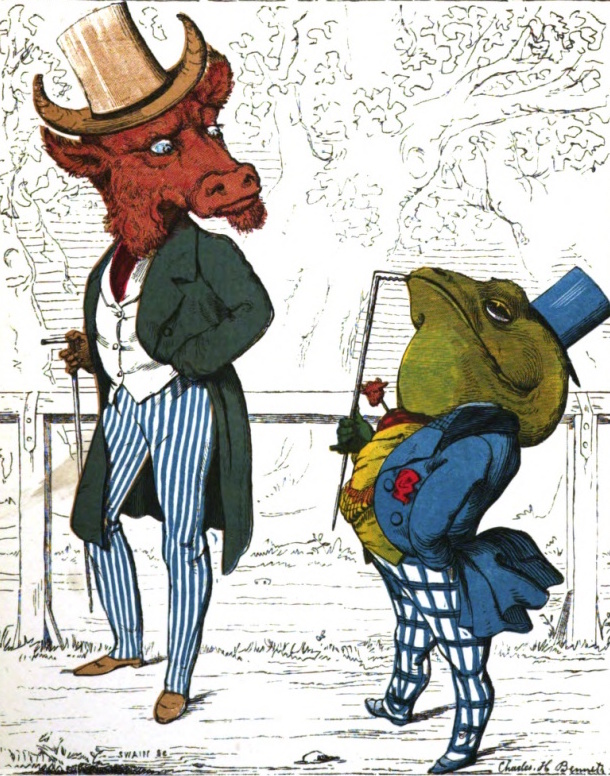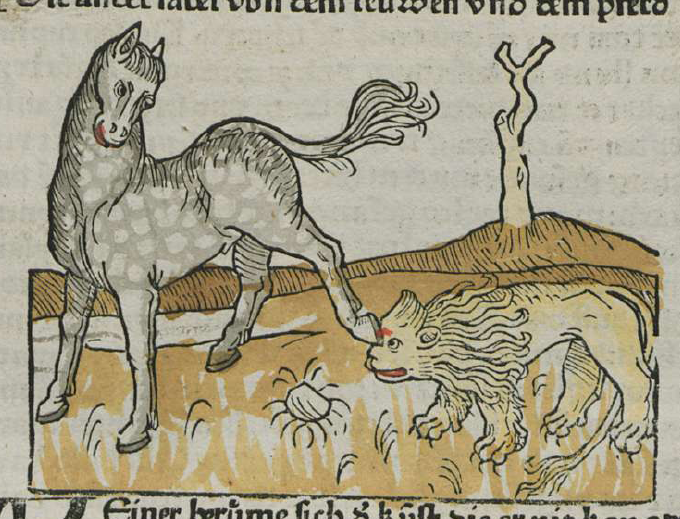21. Of the Wolf and the Painted Head
The wolf turns about and admires a human head found in the shop of a carver: perceiving it to have nothing of sense, he says, "O fair head, there is in thee much of art, but nothing of sense."
Moral. Outward beauty, if the inward be present, is pleasing; but if we must want either, it is better to want the outward than the inward; for that without this sometimes incurs hatred, as a fool is by so much the more odious by how much the more handsome.

22. Of the Jackdaw
The jackdaw adorned himself with the feathers of the peacock: then seeming pretty to himself, he betook himself to the race of the peacocks, his own race being despised. They at length understanding the cheat, stripped the foolish bird of his colors, and belavored him with blows.
Moral. This fable denotes those who carry themselves more loftily than is fit; who live with those who are both more rich and more noble; wherefore often they become poor, and are for a laughing-stock.

23. Of the Frog and the Ox
A frog desirous of equalling an ox stretched herself. The son advised the mother to desist from the undertaking, saying that a frog was nothing to an ox. She swelled a second time. The son cries out, "Mother, although you burst, never will you exceed the ox." But, when she had swelled a third time, she burst.
Moral. Every one has his gift. This man excels in beauty, that in stremgth. This is powerful in riches, that in friends. It becometh every one to be content with his own. He is strong in body; thou in wit: Wherefore let every one consult himself, nor envy a superior, which is a miserable thing; nor wish to contend, which is the part of folly.

24. Of the Horse and the Lion
The lion cometh to eat the horse, but wanting strength thro' old age, he began to meditate art: he professes himself a physician: he stays the horse with a circuit of words. He opposes deceit to deceit: he feigns that he lately had pricked his foot in a thorny place; he prays that the physician looking into it would draw out the thorn. The lion obeys. But the horse, with how great force he could, strikes his heel upon the lion, and immediately betakes himself to his heels. The lion scarce at length returning to himself, for he had been almost dead with the blow, says, "I bear a reward for my folly, and he deservedly has fled away; for he has revenged deceit with deceit."
Moral. Dissimulation is worthy of hatred, and to be taken with dissimulation. An open enemy is not to be feared, but he who pretends benevolence, when he is an enemy, he indeed is to be feared and is most worthy of hatred.

25. Of the Birds and the Four-Footed Beasts
There was a battle to the birds with the four-footed beasts. There was on both sides hope, on both sides fear, on both sides danger: but the bat, leaving his companions, revolts to the enemies. The birds overcome, the eagle being captain and leader, but they condemn the runaway bat that he never return to the birds, that he never fly in the light. This is a reason for the bat that he flies not, unless in the night.

No comments:
Post a Comment
Comments are limited to Google accounts. You can also email me at laurakgibbs@gmail.com or find me at Twitter, @OnlineCrsLady.